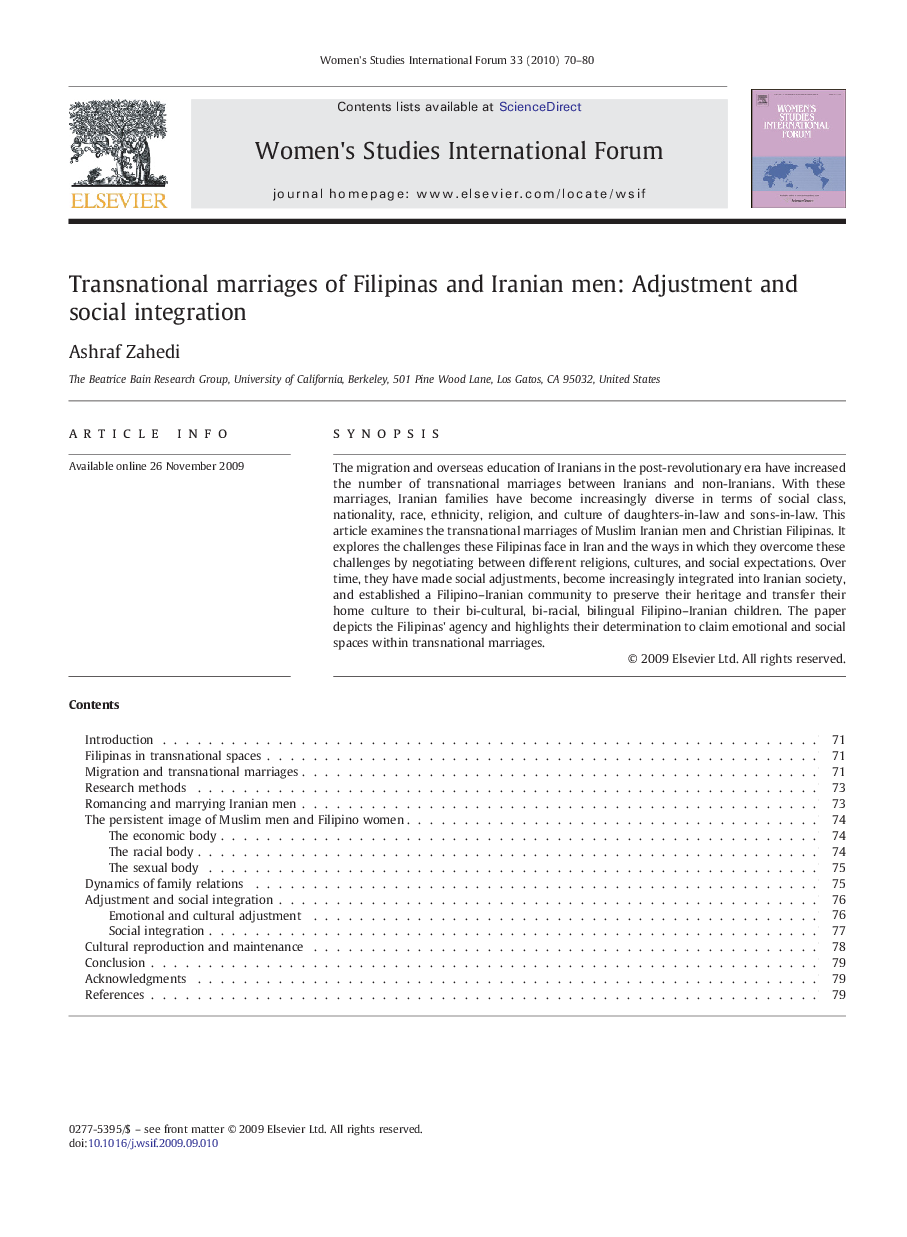| Article ID | Journal | Published Year | Pages | File Type |
|---|---|---|---|---|
| 376380 | Women's Studies International Forum | 2010 | 11 Pages |
SynopsisThe migration and overseas education of Iranians in the post-revolutionary era have increased the number of transnational marriages between Iranians and non-Iranians. With these marriages, Iranian families have become increasingly diverse in terms of social class, nationality, race, ethnicity, religion, and culture of daughters-in-law and sons-in-law. This article examines the transnational marriages of Muslim Iranian men and Christian Filipinas. It explores the challenges these Filipinas face in Iran and the ways in which they overcome these challenges by negotiating between different religions, cultures, and social expectations. Over time, they have made social adjustments, become increasingly integrated into Iranian society, and established a Filipino–Iranian community to preserve their heritage and transfer their home culture to their bi-cultural, bi-racial, bilingual Filipino–Iranian children. The paper depicts the Filipinas' agency and highlights their determination to claim emotional and social spaces within transnational marriages.
